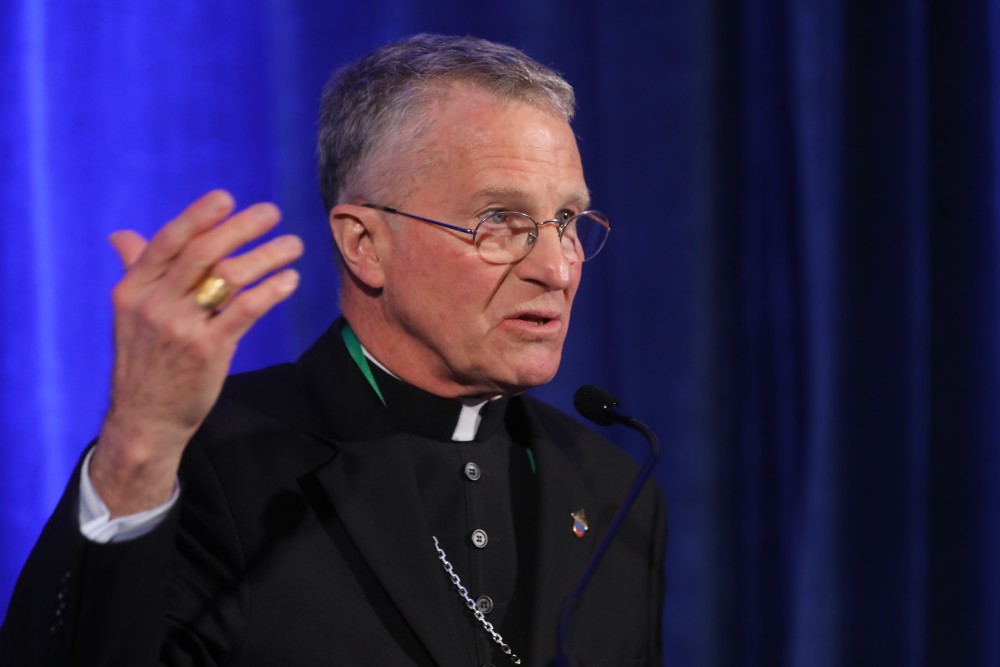
PROSPECT HEIGHTS — As is typically the case, when the U.S. bishops gather in Louisville, Kentucky, this week for their annual spring general assembly, the agenda is rather light, but not absent discussions and votes that are important to the future of the nation’s church.
The U.S. bishops’ spring general assembly kicked off June 12, with the bishops meeting in private. The meeting continues through June 14, with public sessions taking place in the afternoon on June 13 and on the morning of June 14.
At the top of the agenda for the public sessions are addresses by Cardinal Christophe Pierre, the papal nuncio to the United States, and Archbishop Timothy Broglio of the Archdiocese for the Military Services, USA, the president of the U.S. Conference of Catholic Bishops.
While a formal agenda hasn’t been released, its expected the public sessions will also include an update from the USCCB Committee on Migration, as well as updates on the bishops’ national mental health campaign, the Synod on Synodality, the National Eucharistic Revival, and the National Eucharistic Congress.
There are also, likely on June 14, going to be votes on pastoral plans that will help shape the future of the American church. The bishops will vote to approve “Listen, Teach, Send: A National Pastoral Framework for Ministries with Youth and Young Adults,” a pastoral framework for youth and young adult ministry created by the Committee on Laity, Marriage, Family Life, and Youth, which is led by Bishop Robert Barron of Winona-Rochester, Minnesota.
The bishops will also vote to approve “Keeping Christ’s Promise: A Pastoral Framework for Indigenous Ministry,” a pastoral plan for Native American and Indigenous Ministry created by the USCCB’s Subcommittee on Native American Affairs, which is led by Bishop Chad Zielinski of New Ulm, Minnesota. The document was supposed to be voted on at last year’s fall general assembly, but the vote was tabled at the last second so the plan could go through further revisions.
Perhaps the most consequential discussion at this year’s spring meeting, however, will take place behind closed doors, where the bishops will discuss the future of the Catholic Campaign for Human Development, which for the past 50 years has helped community organizations and people nationwide combat poverty.
Announcing that the discussion will take place, the USCCB press office acknowledged that donations to the campaign have declined in recent years, and that last year the office began discussions to explore ways to revamp the office “to adapt to the post-pandemic needs and resources, while at the same time continuing a steadfast commitment to helping the poor and disenfranchised emerge from the cycle of poverty.”
Another item on the bishops’ public agenda is a consultation on opening the cause for beatification and canonization of Adele Brise. Brise was a woman to whom the Blessed Virgin Mary is believed to have appeared to northeast Wisconsin in 1859. Bishop David Ricken of Green Bay will present the proposal.
